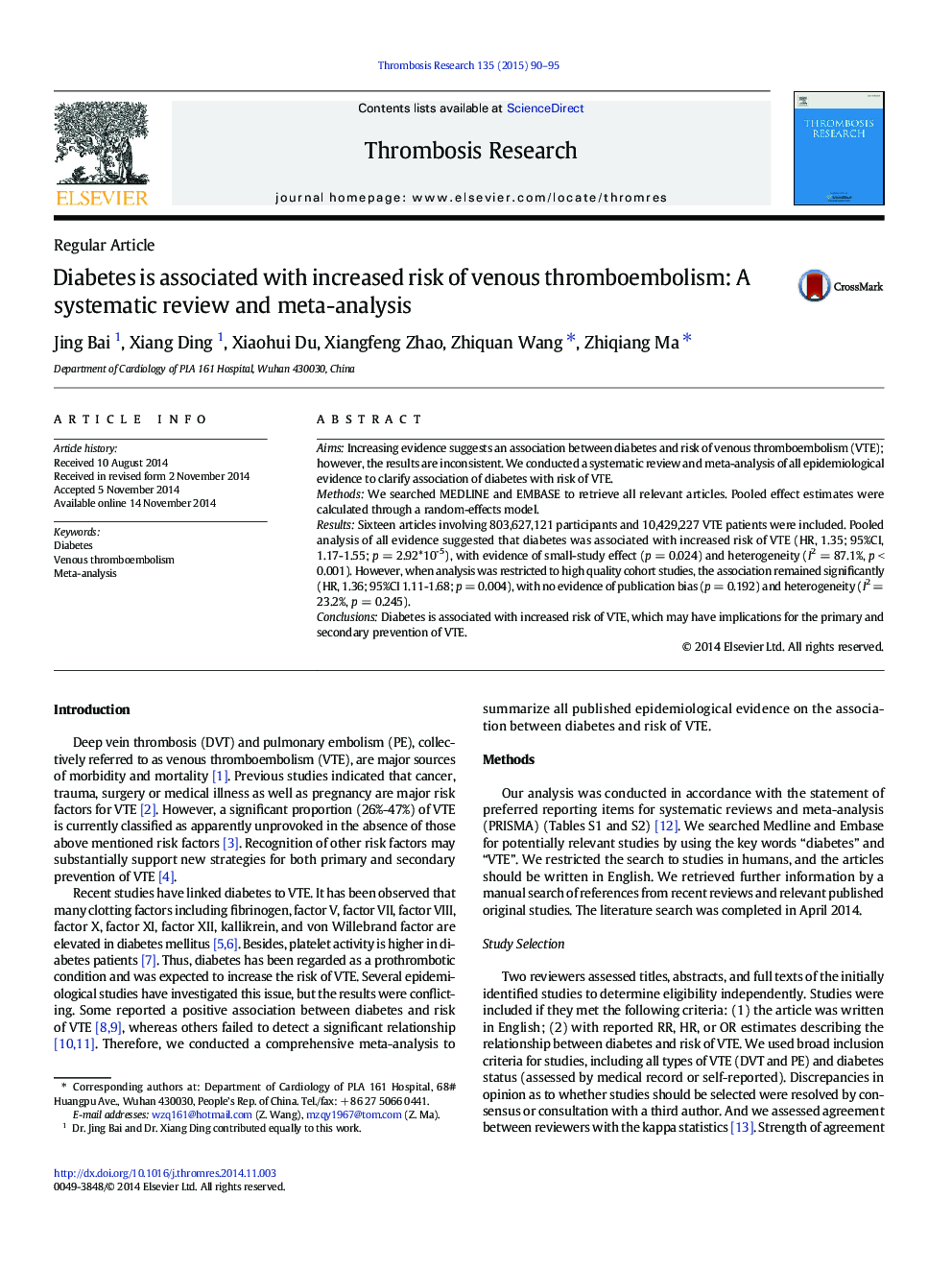| Article ID | Journal | Published Year | Pages | File Type |
|---|---|---|---|---|
| 3027111 | Thrombosis Research | 2015 | 6 Pages |
•The association between diabetes and VTE risk is controversial.•We performed an updated meta-analysis to further investigate the issue.•A much larger sample size and more subgroup analyses were achieved.•Diabetes is associated with increased risk of VTE.
AimsIncreasing evidence suggests an association between diabetes and risk of venous thromboembolism (VTE); however, the results are inconsistent. We conducted a systematic review and meta-analysis of all epidemiological evidence to clarify association of diabetes with risk of VTE.MethodsWe searched MEDLINE and EMBASE to retrieve all relevant articles. Pooled effect estimates were calculated through a random-effects model.ResultsSixteen articles involving 803,627,121 participants and 10,429,227 VTE patients were included. Pooled analysis of all evidence suggested that diabetes was associated with increased risk of VTE (HR, 1.35; 95%CI, 1.17-1.55; p = 2.92*10- 5), with evidence of small-study effect (p = 0.024) and heterogeneity (I2 = 87.1%, p < 0.001). However, when analysis was restricted to high quality cohort studies, the association remained significantly (HR, 1.36; 95%CI 1.11-1.68; p = 0.004), with no evidence of publication bias (p = 0.192) and heterogeneity (I2 = 23.2%, p = 0.245).ConclusionsDiabetes is associated with increased risk of VTE, which may have implications for the primary and secondary prevention of VTE.
